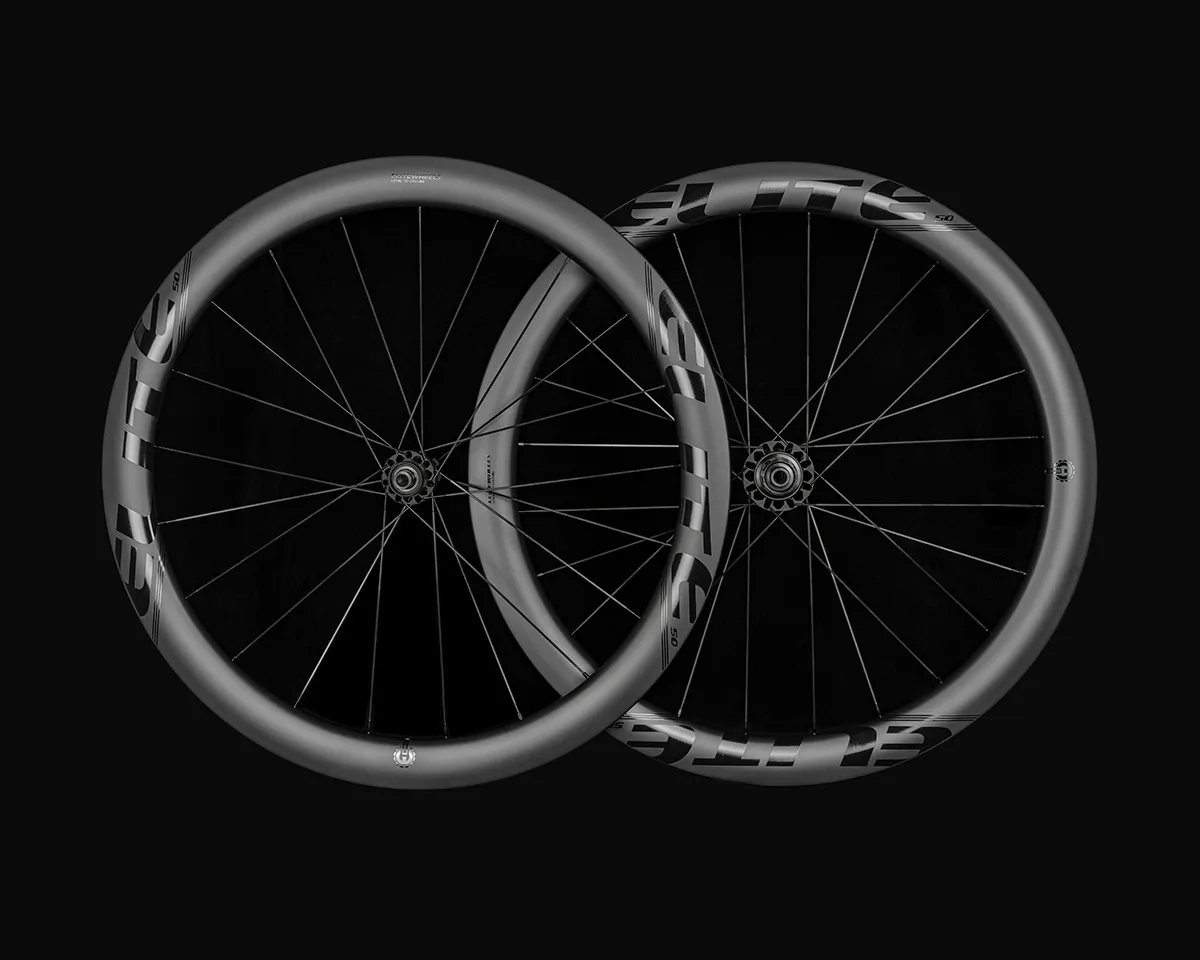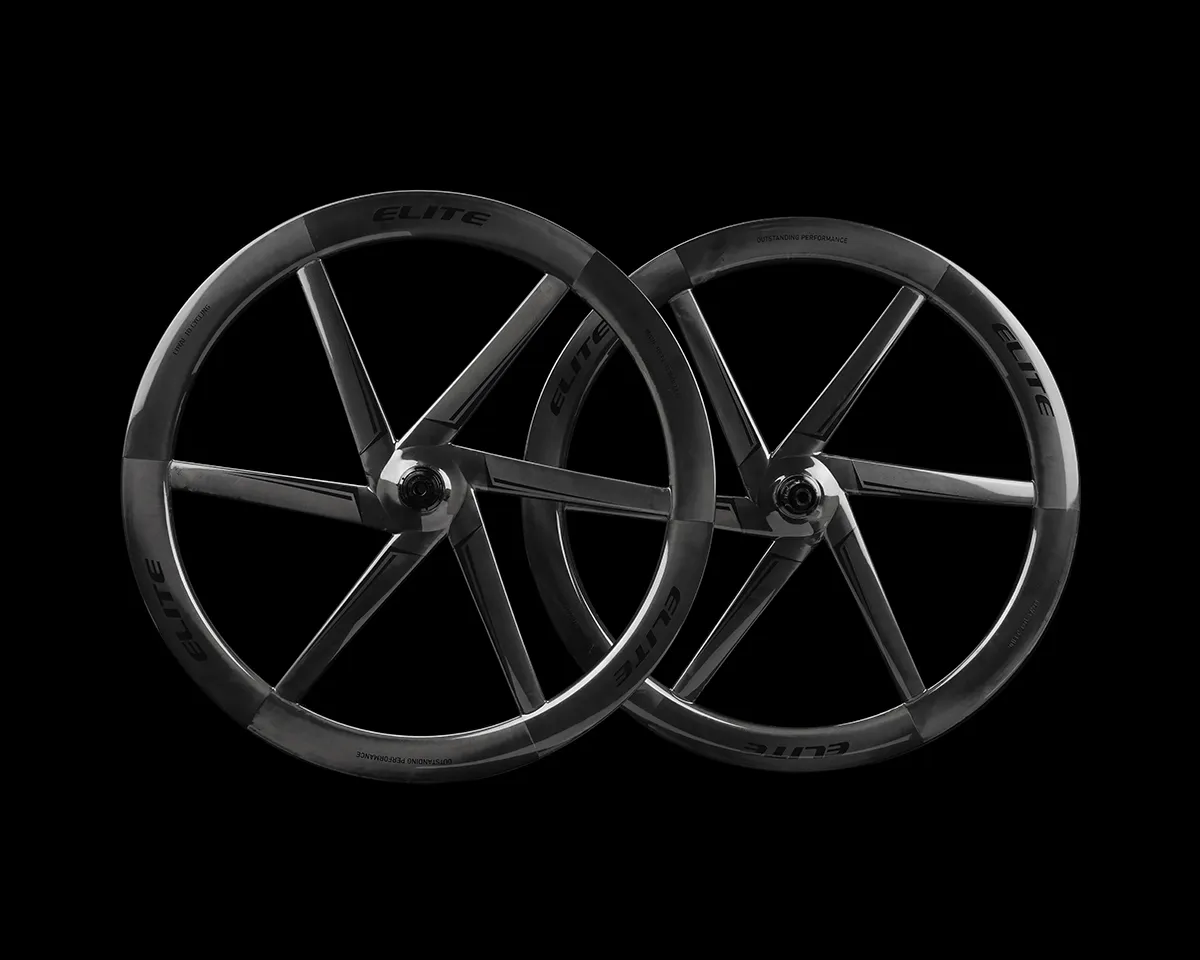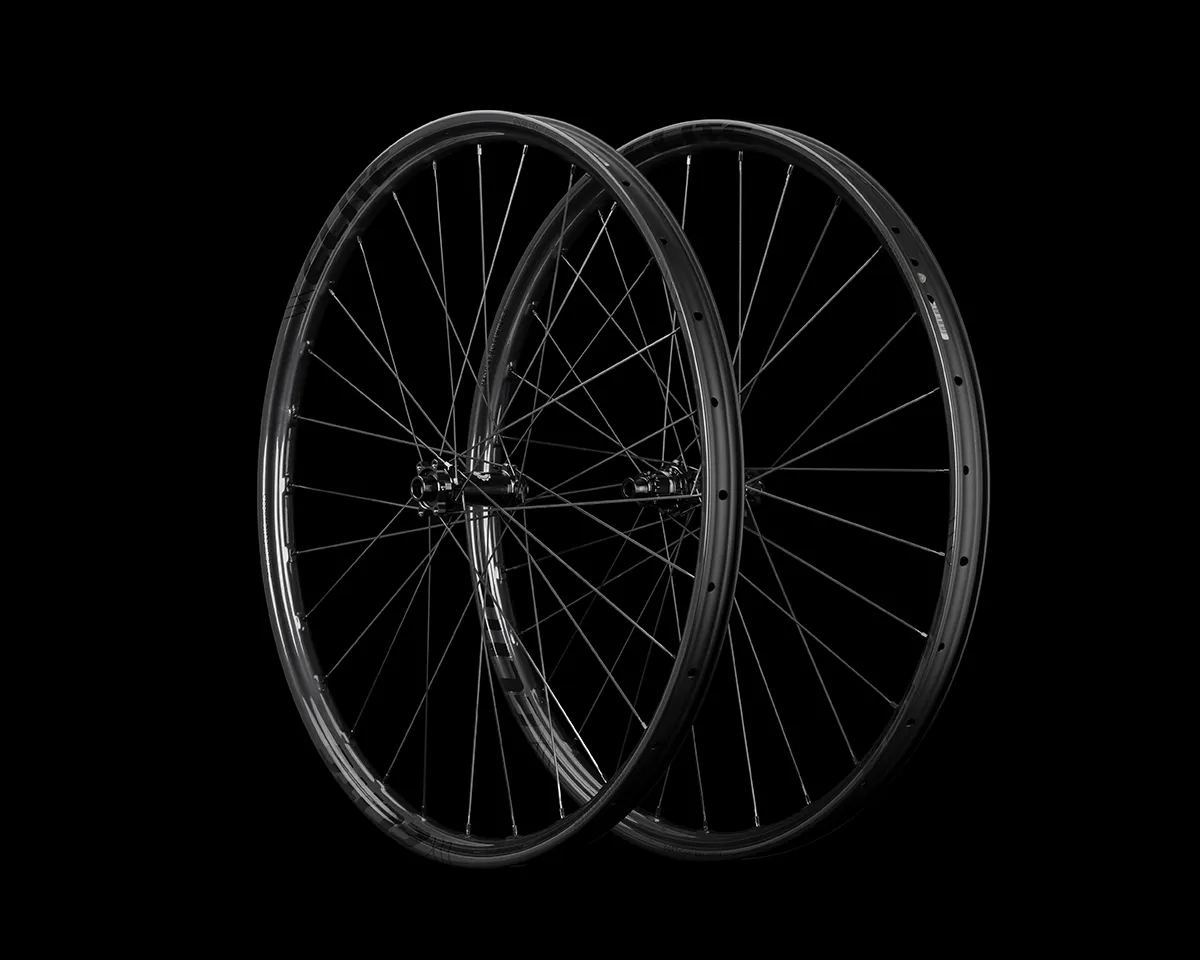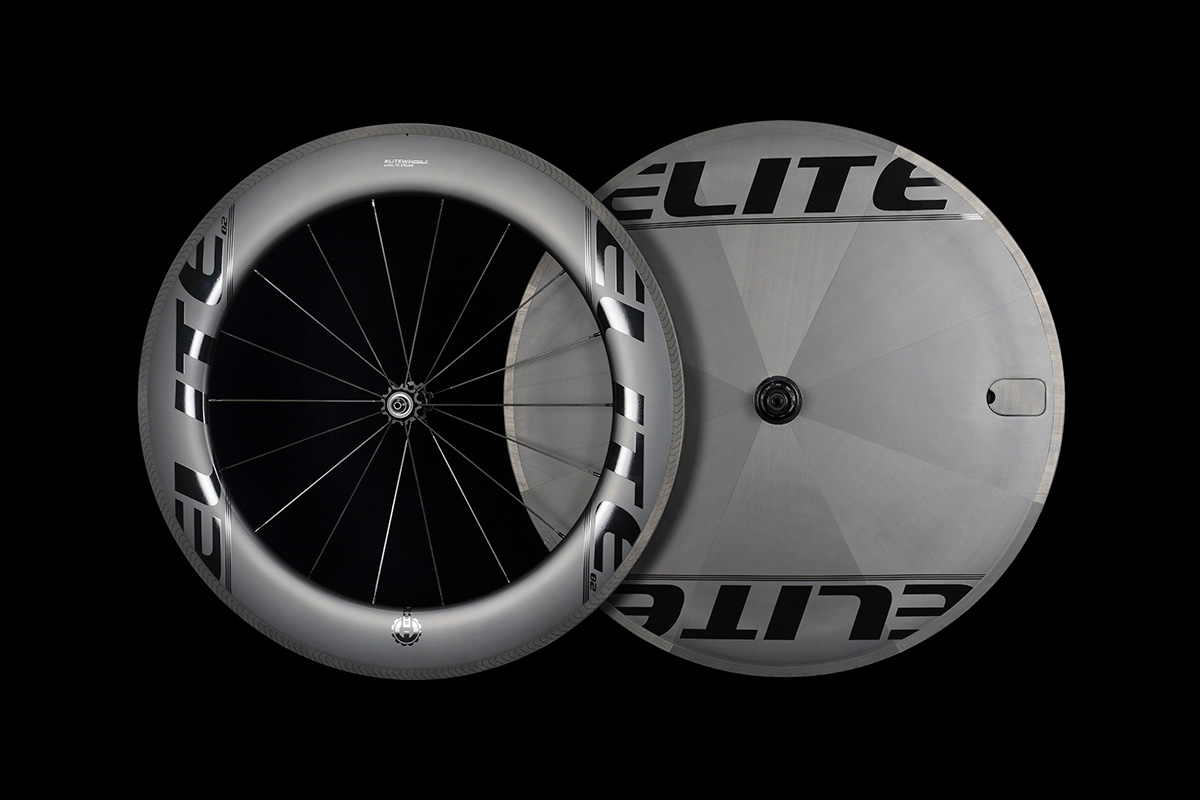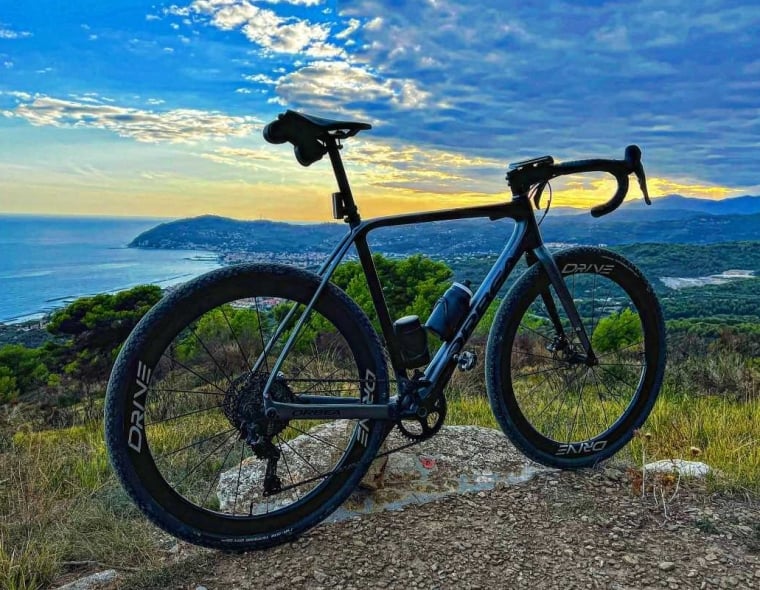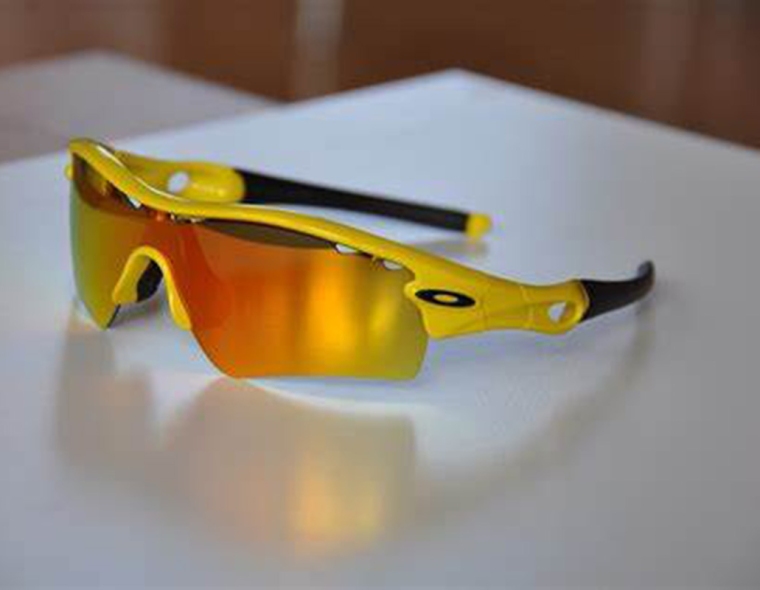
Introduction
The debate between carbon and aluminum, also known as alloy, wheels has been a cliche. Each type has specific advantages and appeals to different riders. Alloy wheels are known for their affordability. In contrast, carbon fiber wheels can be lighter, more aerodynamic, and more responsive but tend to be more expensive. Ultimately, the choice depends on your personal preferences and riding style. The most important thing is to choose wheels that you enjoy.
In this article, we’ll explore the differences, specifically ride comfort, weight, aerodynamics, stiffness, and aesthetic.

Ride Feel/Comfort
When deciding between alloy and carbon wheels, one common concern is comfort. What good are your wheels if you can’t stand riding them for extended periods of time.
Vertical Compliance
There is a common misconception that carbon wheels feel harsher to ride than alloy ones. The truth is that there is virtually no perceptible difference, as the vertical compliance between the stiffest and most compliant wheels is around 1mm, meaning that wheels will only flex by a 1/10 of a centimeter even in normal riding conditions. Deeper dish wheels may be perceived as less comfortable, but that subjective feeling has to due with unrelated factors like sound resonance in the wheels.
Choice of Tires
What makes a wheel more comfortable isn’t the wheel itself, rather it is the tire. Larger, wider tires provide most of a bicycle’s comfort or lack thereof. A 23mm tire has much less air volume and must be inflated to a much higher pressure than a 32mm tire. The lower pressures of a wider tire allow for more shock absorption when riding over bumps and uneven surfaces.

Lightweight and Aerodynamic
Carbon Wheels are Stiffer
Based on the carbon fiber layup, types of carbon and resin used, and the manufacturing process, carbon fiber can be designed to be exceptionally light, stiff, and strong. A carbon wheel made from carbon fiber, which is renowned for its high strength-to-weight ratio is often much lighter and stiffer than a comparable aluminum wheel. The low weight and increased stiffness will improve your bike’s acceleration and handling. This makes carbon wheels the optimal choice for riders seeking a competitive edge to enhance their climbing, sprinting, and cornering.
Choice of Rim Depths
As opposed to alloy wheels, carbon wheels come in a wide range of depths, from shallow (around 25mm) to deep-section (88mm). The deeper the rims, the better the aerodynamics. A deeper rim profile will reduce drag, saving you energy, especially on flat terrain, rolling hills, or descents. The key to good aerodynamics is minimizing air separation over the wheel’s surface, maintaining attached airflow for longer.
This is most effectively achieved with deeper wheels. Triathlon and time trial riders, who prioritize aerodynamics, typically use the deepest wheels available, with some opting for solid “disc” rear wheels for even better aerodynamics. However, choosing rim depth is often a balancing act between aerodynamics and weight.
For Those On a Budget
Aluminum bicycle wheels, with aluminum rims, are typically shallow because deep-section aluminum wheels would be too heavy. Aluminum wheels often used as stock wheels on less expensive bicycles. Some riders also use them as training wheels or for riding in bad weather due to their relatively low cost.

Lateral Stiffness
Both carbon and alloy wheelsets offer similar levels of vertical compliance and stiffness. However, they differ in their lateral stiffness, meaning side to side. Carbon fiber wheels are specifically designed to be laterally stiff due to the directional properties of the carbon fibers. This high lateral stiffness helps them resist flexing under load, allowing more of the rider’s energy to be directed into forward motion. In contrast, aluminum rims, which are not as stiff laterally, might make a bike feel slightly less responsive during acceleration and when cornering.
Durability
Carbon Wheels
In terms of durability, carbon fiber wheels are strong due to their high tensile strength. Advancements in carbon wheel technology have significantly enhanced their resilience and reliability. In order for carbon road wheels to be race ready for pro racers, the wheels must have passed the UCI vertical drop test, designed by the UCI, the governing cycling body. Elitewheels’ road, gravel, TT, and MTB wheels have impact strengths that go far beyond the basic requirements to become UCI certified.
Aluminum Wheels
Aluminum wheels are favored by some riders, like mountain bikers, as they can also be durable as well as in most cases more cost effective. Alloy wheels can be repaired more easily and are often less expensive to replace.

Aesthetics
Just like a frame, a set of wheels can dramatically change the appearance of a bike. While some prefer the classic look of aluminum wheels, there is something special about deep section carbon wheels. While a bike’s aesthetics is often subjective, it’s undeniable that the various surface finish techniques used in carbon fiber construction result in exceptionally attractive wheels.
Value for Money
Why is Carbon More Expensive
In general, carbon wheels tend to be more expensive that alloy one’s. The material, equipment, and labor costs of carbon wheels is much higher than that of their alloy counterpart. Carbon fiber and carbon fiber prepreg is much more expensive to produce. Carbon wheels must also be laid up by hand, molded, etc… They also much be build by hand by professional wheelbuilders. The process of building alloy wheels is essentially automated, with the rims being shaped by a machine. The wheelbuilder is typically mechanized as well.
Making a Decision
Because of the reasons mentioned above, carbon wheels will in general be much more expensive than alloy ones, but the truth is not all carbon and alloy wheels are crated equal. Nowadays, there is a huge choice in cycling accessories and components. It can cause choice overload in many people. With so many brands, it can hard to know which offer not only good products, but also a warranty and easy-to-contact customer service.
Elitewheels’ Carbon Wheels
About Us
Elitewheels designs and manufactures its own carbon fiber prepreg, resin, rims, and complete wheelsets. This allow for reduced costs. Each wheel comes with a 3-year warranty, crash replacement, free shipping, and a global service center network.
Road Wheels
Our entry-level Marvel carbon wheelsets start at only $599 for the pair. They come with ceramic bearings and pillar spokes, with an optional upgrade to Sapim CX Ray Spokes. They come in both disc and rim brake options.
Our Drive road wheelsets, starting at $1169 and only 1260g for the pair, on the other hand are 300-400 grams lighter. They feature our own in-house high grade carbon fiber, replaceable full carbon spokes, and ceramic bearings. They are available in both disc and rim brake options and are currently raced by 6 UCI Continental pro cycling teams.
The last wheelset is the Velo Six. It is a full carbon, monocoque wheelset with, you guessed it, six spokes. It features a star ratchet hub. The wheelset is exceptionally stiff and aerodynamic, making it perfect for high speeds and sprinting on the flats.
Gravel Wheels
Just like the road wheelsets, Elitewheels offers a variety of different gravel wheelsets. The entry-level Marvel G35 gravel wheelset is perfect for those getting started. It features the gold standard of steel spokes, Sapim CX Rays. It also features ceramic bearings for lower rolling resistance.
The Drive G45 CS (1300g) and Drive G45 SS (1370g) feature carbon and steel spokes respectively. Our replaceable carbon spokes help to improve lateral stiffness while reducing weight. Both wheels are excellent for those who are into racing or having a high-performance bike.
The Drive Six Gravel is a unique gravel wheelset that used a full carbon monocoque design that is stiffer and aerodynamic. It has a striking appearance that is likely to turn heads.
MTB Wheels
Elitewheels offers three different series of MTB wheels
Pro series wheelsets are available in 29er and 27.5” options. These wheels all come with reliable, easy-to-service star ratchet hubs. There are different models based on how you ride. From XC and trail, to All Mountain, and Enduro, we have something for just about everything.
The 29er Gnar Trail PR features a pawl and ratchet style freehub mechanism with 320 points of engagement. It is perfect for technical riding since it has such quick pick-up. There is also a star ratchet option, the 29er Gnar Trail SR. The pawl and ratchet version is also suitable for eMTB.
TT/Triathlon Wheels
For triathlons and time trialists, we offer both disc brake and rim brake rear disc wheels as well as 82mm deep section front wheels. These wheels are used by our sponsored UCI Continental teams, and have been raced in some of the most competitive ProTour races.
Conclusion:
Choosing between carbon and aluminum wheels involves weighing various factors, including ride comfort, weight, aerodynamics, speed, energy efficiency, technology, stiffness, aesthetics. Both carbon and alloy offer benefits, and the best choice depends on your specific needs and preferences. By understanding the key differences behind them, you can make an informed decision and select the wheels that best enhance your cycling experience.


